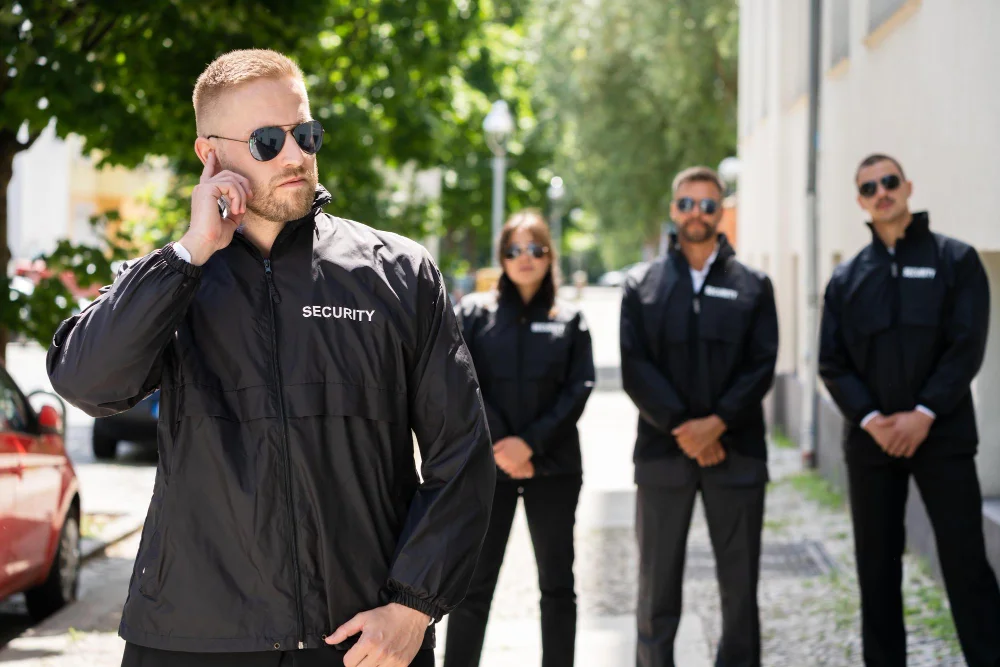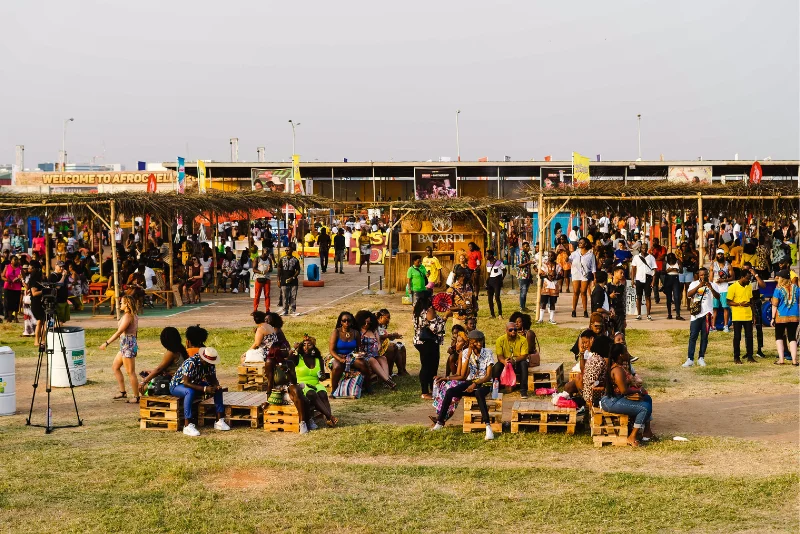Many factors contribute to a safe and enjoyable experience at music festivals, and one of the most important roles is played by trained security personnel. As you navigate through bustling crowds and vibrant performances, these professionals stand prepared to manage potential risks, intervene in emergencies, and ensure compliance with safety regulations. Understanding how their training and expertise function can enhance your confidence in attending these large events and help you make the most of your festival experience.
The Role of Security Personnel in Crowd Management
Security personnel play a vital role in managing large crowds at music festivals, ensuring safety while enhancing the attendee experience. They implement strategic measures to maintain order, address potential hazards, and provide immediate assistance when needed. This involves constant communication with event organizers to assess crowd dynamics and make real-time decisions that prioritize crowd safety and enjoyment.
Controlling Access and Egress
Effective access and egress management is important for maintaining order at music festivals. Security personnel monitor entrance and exit points, ensuring only authorized individuals enter the venue. They employ scanning technology and ID checks to validate tickets, effectively preventing overcrowding and minimizing the risks associated with uncontrolled access.
Monitoring Crowd Behaviour and Interventions
Active monitoring of crowd behaviour allows security personnel to identify potential issues before they escalate. By observing interactions among festival-goers, they can pinpoint signs of distress, aggression, or problematic behaviour. Quick interventions, such as de-escalating a situation or guiding individuals to safe spaces, ensure that everyone enjoys the event without feeling threatened or uncomfortable.
Security personnel are trained to recognize subtle cues that may indicate trouble, including sudden shifts in energy levels, clusters of individuals engaged in altercations, or excessive intoxication. By closely monitoring these behaviours, they can respond swiftly to diffuse tensions, often using verbal de-escalation techniques. For instance, at a recent festival, proactive engagement enabled security staff to address a brewing conflict before it escalated, resulting in a peaceful resolution and maintaining a positive atmosphere for all attendees.
Risk Assessment and Emergency Preparedness
Effective risk assessment and emergency preparedness are integral to maintaining a safe environment during music festivals. Trained security personnel conduct thorough evaluations of the venue, crowd behaviour, and potential hazards to identify vulnerabilities that could lead to emergencies. This proactive approach ensures that your safety is prioritized and allows for rapid response to any incidents that may arise.
Identifying Potential Threats Before They Escalate
By continuously monitoring the environment, security teams can spot potential threats early, whether it’s a crowd surge, suspicious behaviour, or weather concerns. You benefit from their trained eyes that analyze situations swiftly, enabling them to implement preventive measures that stop problems before they escalate into crises.
Developing Emergency Response Plans
Emergency response plans outlined by security personnel prepare teams for various situations. Each plan is tailored to the specific needs of a music festival, including evacuation routes, medical response protocols, and communication strategies. These detailed plans ensure a coordinated effort from all staff members in times of crisis.
Developing emergency response plans goes beyond just having a checklist. Trained personnel simulate various scenarios, such as medical emergencies or fire outbreaks, to evaluate the effectiveness of their responses. They work with local authorities, medical teams, and fire services to establish clear lines of communication and coordination. By including drills and training sessions, you’ll see first-hand how well-prepared the security team is, ensuring that your experience remains safe and enjoyable, even in unforeseen situations.
Training Protocols for Security Teams

Training protocols for security teams are meticulously designed to address the specific challenges presented by music festivals. These protocols often encompass comprehensive training sessions that cover various aspects of safety, from conflict resolution to emergency first aid. Your security personnel undergo rigorous training to prepare them for any situation they might encounter while patrolling the festival grounds, ensuring they can maintain order and act swiftly during emergencies.
Specialized Skills and Certification Programs
Security personnel often complete specialized skills and certification programs that equip them with industry-standard knowledge and practices. These programs may include certifications in crowd management, de-escalation techniques, and even counter-terrorism strategies. By investing in these skill sets, your security staff becomes more adept at anticipating potential issues and handling them effectively before they escalate.
Scenario-Based Drills and Real-Time Simulations
Scenario-based drills and real-time simulations form an important part of security training, providing realistic practice in handling emergencies. These exercises recreate possible festival incidents such as crowd surges or medical emergencies, allowing your security team to rehearse their responses and improve coordination under pressure.
In these simulations, the objective is to mimic real-life scenarios as closely as possible, even incorporating actors and props. This training fosters teamwork and communication among security personnel, enabling them to develop quick decision-making skills that are critical during actual events. For instance, your team might practice responding to an unexpected medical emergency or a crowd disturbance, allowing them to refine their strategies while enhancing overall preparedness. The hands-on experience gained from these drills often translates directly into improved safety outcomes during the festival.
Communication and Coordination with Law Enforcement
Effective communication and coordination with law enforcement agencies create a unified approach to security at music festivals. Security personnel regularly share information regarding crowd dynamics, potential threats, and medical emergencies with local police to ensure rapid response and proactive measures. This collaboration minimizes confusion and enhances overall safety protocols, allowing for a seamless flow of information during critical situations.
Establishing Clear Lines of Communication
Establishing clear lines of communication is fundamental for a successful security operation. Before the festival begins, security teams and law enforcement agencies develop communication protocols, utilizing radios or secure apps to share real-time updates. This connection allows for swift notification of any incidents and enables both teams to manage situations effectively, ensuring you’re well-protected throughout the event.
Collaborative Strategies for Incident Resolution
Collaborative strategies for incident resolution involve coordinated responses between security and law enforcement during emergencies. By conducting joint training exercises, both parties enhance their skills in managing various scenarios, from medical situations to crowd disturbances. This level of preparedness means that, should an issue arise, you can expect a rapid and organized response that prioritizes your safety.
In practice, these collaborative strategies often include pre-festival briefings where security staff and law enforcement review potential scenarios and agree on response protocols. During a festival, joint task forces may be established to monitor key areas and respond to incidents. For example, if a medical emergency occurs, trained security personnel can immediately alert law enforcement and medical responders, ensuring that help is dispatched without delay. This synchronized approach not only protects attendees like you but also fosters a sense of safety, allowing everyone to enjoy the event with confidence.
The Impact of Security Presence on Attendee Experience

Your experience at a music festival often hinges on the atmosphere created by the security presence. A well-trained security team not only mitigates potential threats but also enhances the overall festival experience. You feel more at ease knowing that professionals are on-site, vigilantly watching for any signs of trouble. This assurance allows you to immerse yourself fully in the performances, connecting with fellow attendees and enjoying the event without constant worry.
Summing Up Safety During Music Festivals?
Drawing together the various roles of trained security personnel, you can see how their presence enhances safety during music festivals. Their expertise in crowd management, emergency response, and conflict de-escalation helps create a secure environment for you and other attendees. By remaining vigilant and prepared for any situation, they ensure that your experience remains enjoyable and worry-free. Understanding their importance not only increases your comfort level but also promotes a culture of safety that benefits everyone at the event.
